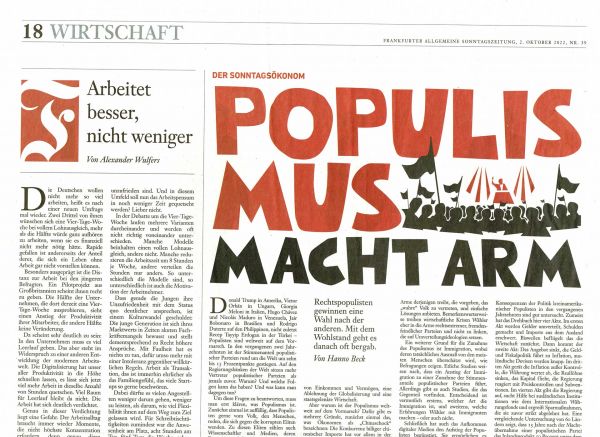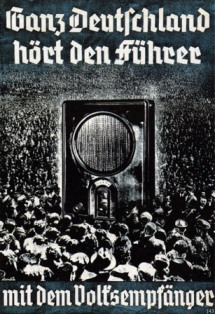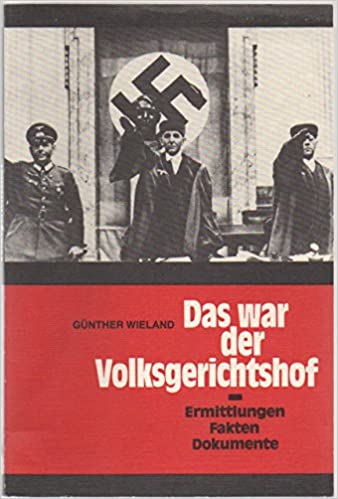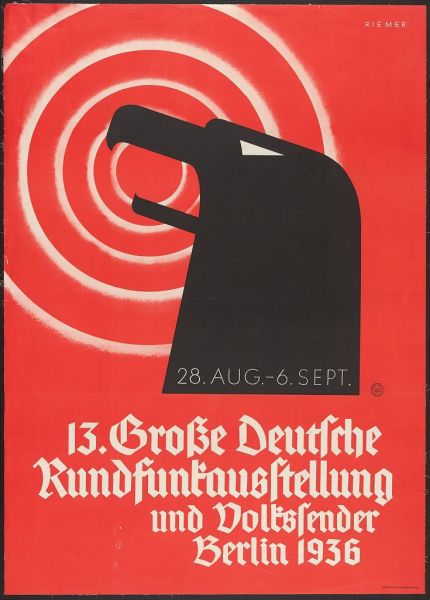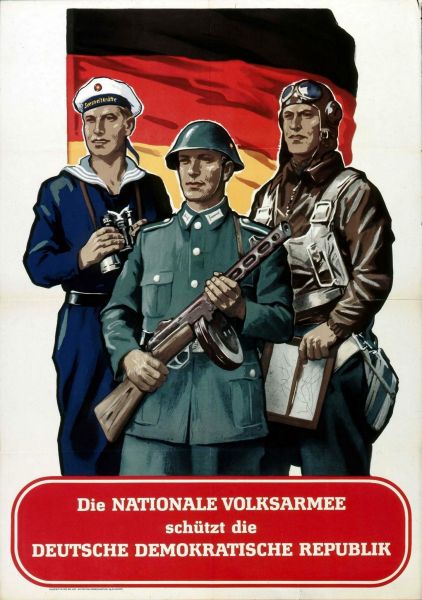Populism Makes Poor
Populism Makes Poor
Thanks to Donald Trump in America and the Alternative for Germany, the word "populism" has a new mostly negative application. Calling a politician a "populist" will never fail to rile him, if he is worth his salt; but the new attention has ironically obscured the original meaning; so I went on-line and researched the meaning on Wikipedia. As near as I can, the meaning has not changed:
- Populism emphasizes the idea of "the People" and juxtaposes this group against "the Elite."
- It is frequently associated with anti-Establishment or anti-political sentiment.
- (P)opulism presents "the People" as a morally good force and contrasts it against the "Elite," who are portrayed as corrupt and self-serving.
- (P)opulism refers to the popular engagement of the population in political decision-making.
Obviously, the use of the term and its presumed definition leave a lot of wiggle-room to give it credence in different situations, but In its basic sense, populism just dusts off the principles of representative government and applies them more aggressively—against the accrued power of known power-brokers—an aggressive, intentional democracy.
Emphasizing "the People" against "the Elite" has defined most famously the National Socialists of Germany, also known as the "Nazis." It has also defined the position of Soviet-controlled East Germany, of standing for "the People" against "the Elite."
The Nazis offered free radios to Germans so they could tune in to the continous propaganda of Nazi-controlled broadcasting: the "Volksempfänger," the people's radio.
Political criminals in Nazi Germany had to appear before Judge Roland Freisler, the chief judge of the People's Court, the "Volksgerichtshof." The judge did little more than harangue defendants for their betrayal of the German nation in a shrill, judgmental voice.
East Germany did little to change the basic intent of the Nazis, even though it claimed to represent the opposite intentions of the Nazis. Thus, the East German radio called itself the "Volkssender," just another name for "the People's Radio."
East Germany also named its army the "Nationale Volksarmee," or the "National People's Army."
If Leftists want to tar either Donald Trump or the AfD with the term "populist," they will quickly run into a problem. Both Trump and the AfD grew out of educated, professional backgrounds:
- Trump, with a degree from the University of Pennsylvania's Wharton School of Economics—later becoming a billionaire real estate mogul, hotelier, and casino-owner;
- The AfD leaders consist of—
- -a) Dr. Bernd Lucke, who has a doctorate from the Free University of Berlin;
- -b) Dr. Frauke Petry, who has a doctorate from the University of Göttingen;
- -c) Dr. Jörg Meuthen, who has a doctorate from the University of Cologne;
- -d) Dr. Alice Weidel, who has a doctorate from the University of Bayreuth;
Weidel, Lucke, and Petry all have doctorates in economics. Neither the AfD nor Trump deserves the perjorative "populist" designation, just because they have positions that are outside the box. Neither advocates the dumbed-down and dictatorial stances that Germany had under the Nazis and the Soviets. The term "populist" also suits France under the revolutionary "Directorate." Each new generation of members basically devoured the previous generation, executing them on the guillotine. The public came out to watch, cheering each new execution, hardly differentiating one from the other.

